In a big win for environmentalists and the planet, the administration of United States President Barack Obama announced on January 20 that it would deny a permit to build the Keystone XL pipeline to transport oil from the Alberta tar sands in Canada.
Anti-tar sands activists in the US and Canada have been seeking to stop the pipeline, planned to transport oil from the Athabasca tar sands in north-east Alberta to refineries in the United States. Mining the Athabasca tar sands is one of the most environmentally destructive practices on the planet.
-
-
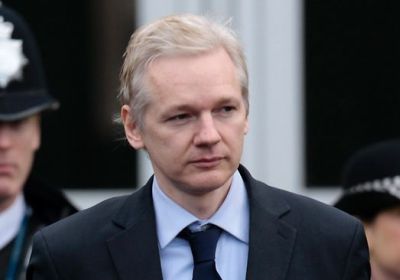 The Supreme Court hearing in the Julian Assange case has profound meaning for the preservation of basic freedoms in Western democracies. This is Assange’s final appeal against his extradition to Sweden to face allegations of sexual misconduct that were originally dismissed by the chief prosecutor in Stockholm and constitute no crime in Britain.
The Supreme Court hearing in the Julian Assange case has profound meaning for the preservation of basic freedoms in Western democracies. This is Assange’s final appeal against his extradition to Sweden to face allegations of sexual misconduct that were originally dismissed by the chief prosecutor in Stockholm and constitute no crime in Britain. -
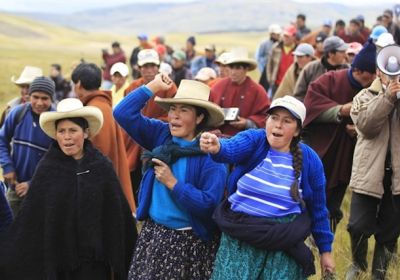 Cajamarca, a town with tragic associations in Peruvian history, is the setting of another devastating imperialist onslaught. In 1532, a band of Spanish conquistadores ambushed the Inca king Atahualpa in the central plaza of this Andean town. The brutal spirit of conquista is alive and well in contemporary Cajamarca, in the form of the US-based Newmont mining corporation, an outfit with a slick PR machine and a very dirty environmental and human rights track record.
Cajamarca, a town with tragic associations in Peruvian history, is the setting of another devastating imperialist onslaught. In 1532, a band of Spanish conquistadores ambushed the Inca king Atahualpa in the central plaza of this Andean town. The brutal spirit of conquista is alive and well in contemporary Cajamarca, in the form of the US-based Newmont mining corporation, an outfit with a slick PR machine and a very dirty environmental and human rights track record. -
 Five anti-nuclear activists travelled from Australia to attend the Global Conference for a Nuclear Power Free World held in the Japanese port city of Yokohama, over January 14–15. The conference was attended by 11,500 people over the two days including 100 international participants from 30 countries.
Five anti-nuclear activists travelled from Australia to attend the Global Conference for a Nuclear Power Free World held in the Japanese port city of Yokohama, over January 14–15. The conference was attended by 11,500 people over the two days including 100 international participants from 30 countries. -
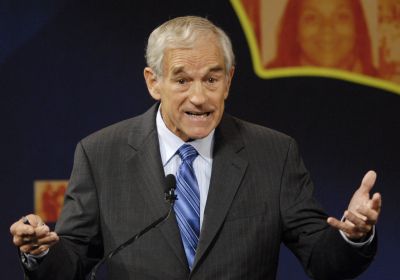 These days when an online conversation turns to international affairs, even here in Australia, it’s not long before the Ron Paul supporters arrive. Not since the height of Obamania have so many Australians been so enthusiastic about a US politician. But what makes the passion about Paul even more remarkable is that he’s a Republican — and many of his local fans identify as progressives.
These days when an online conversation turns to international affairs, even here in Australia, it’s not long before the Ron Paul supporters arrive. Not since the height of Obamania have so many Australians been so enthusiastic about a US politician. But what makes the passion about Paul even more remarkable is that he’s a Republican — and many of his local fans identify as progressives. -
 The nationwide strike in Nigeria against a petrol price hike ended under rather curious circumstances on January 16. The strike called by trade unions had crippled the economy, save for the fact that the oil pipelines continued to deliver their load. Labour leaders and civil society coalitions entered into dialogue with a government that favours monologues. It was not surprising that the game was over before the labour leaders knew it.
The nationwide strike in Nigeria against a petrol price hike ended under rather curious circumstances on January 16. The strike called by trade unions had crippled the economy, save for the fact that the oil pipelines continued to deliver their load. Labour leaders and civil society coalitions entered into dialogue with a government that favours monologues. It was not surprising that the game was over before the labour leaders knew it. -
When US forces crossed into Pakistan from Afghanistan and killed 24 Pakistani border guards on November 26, it further strained Pakistan-US relations, already complicated by the fact the Pakistani elite, in particular the military, maintains close links to both the US and the Taliban. This collaboration with both sides of the Afghan war has continued despite the November 26 incident being far from unique. Both the Taliban and the US-led forces routinely kill Pakistani civilians, as well as soldiers and police.
-
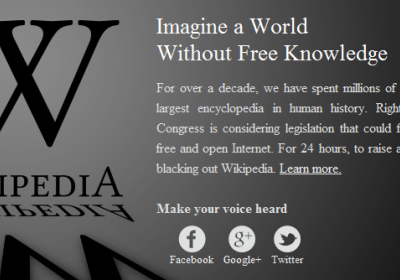 United States politicians have, for the moment, succumbed to pressure of a growing campaign against the Stop Online Piracy Act (SIPA) and the PROTECT IP act (PIPA). The campaign has involved forces ranging from independent bloggers and content producers to internet giants Wikipedia, Reddit, Facebook, Twitter and Google In response to protests, the proposed acts have, for now, been shelved.
United States politicians have, for the moment, succumbed to pressure of a growing campaign against the Stop Online Piracy Act (SIPA) and the PROTECT IP act (PIPA). The campaign has involved forces ranging from independent bloggers and content producers to internet giants Wikipedia, Reddit, Facebook, Twitter and Google In response to protests, the proposed acts have, for now, been shelved. -
The article below is a joint statement released by left parties from Pakistan and Afghanistan, who took part in a conference in Lahore over December 21-22. It is reprinted from Links International Journal of Socialist Renewal. * * * The progressive and democratic forces of Pakistan and Afghanistan met in Lahore for two days in the first ever joint conference.
-
 Egyptians massed in Tahrir Square on January 27 to press the ruling junta to transfer power to a civilian administration and put generals on trial for killing protesters during the popular uprising last year. The protest was staged on the first anniversary of the "Friday of Rage," one of the bloodiest days of the 18-day wave of protests a year ago that ousted former president Hosni Mubarak. Police and soldiers killed and wounded hundreds of protesters.
Egyptians massed in Tahrir Square on January 27 to press the ruling junta to transfer power to a civilian administration and put generals on trial for killing protesters during the popular uprising last year. The protest was staged on the first anniversary of the "Friday of Rage," one of the bloodiest days of the 18-day wave of protests a year ago that ousted former president Hosni Mubarak. Police and soldiers killed and wounded hundreds of protesters. -
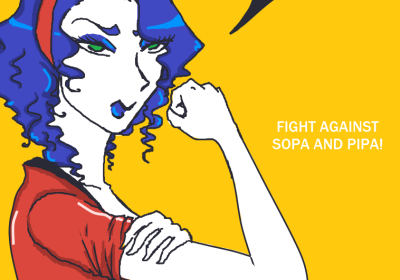
The high profile shutdown of file-hosting company MegaUpload on January 20, and the arrest of CEO Kim Schmitz (aka Kim Dotcom) and other executives for allegedly operating a global pirating network, is the latest shot in the war over freedom on the internet.
-
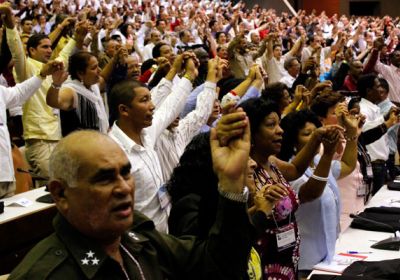 The Sixth Congress of the Cuban Communist Party (PCC), held in April, “endorsed for the first time a fundamental change in the political and economic model”, said Cuban political scientist and Temas editor Rafael Hernandez. This does not mean abandoning Cuba’s socialist project, but renewing this project after two decades of the post-Soviet “Special Period”. This is a deep structural crisis in Cuba’s post-capitalist, centrally-planned economy and an ideological and ethical crisis of the nation’s socialist vocation.
The Sixth Congress of the Cuban Communist Party (PCC), held in April, “endorsed for the first time a fundamental change in the political and economic model”, said Cuban political scientist and Temas editor Rafael Hernandez. This does not mean abandoning Cuba’s socialist project, but renewing this project after two decades of the post-Soviet “Special Period”. This is a deep structural crisis in Cuba’s post-capitalist, centrally-planned economy and an ideological and ethical crisis of the nation’s socialist vocation.